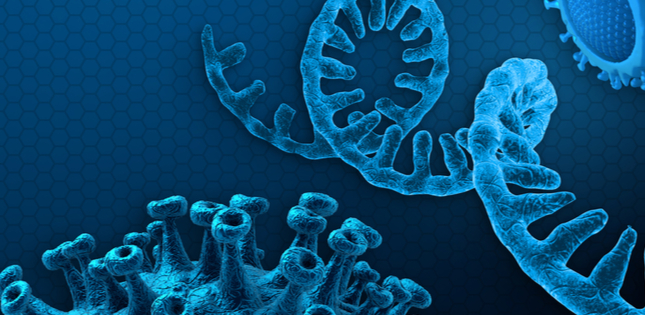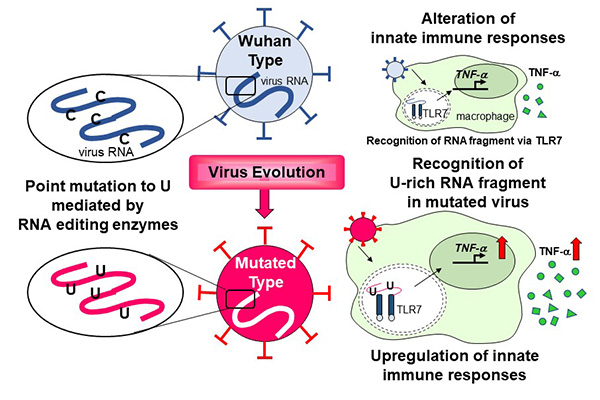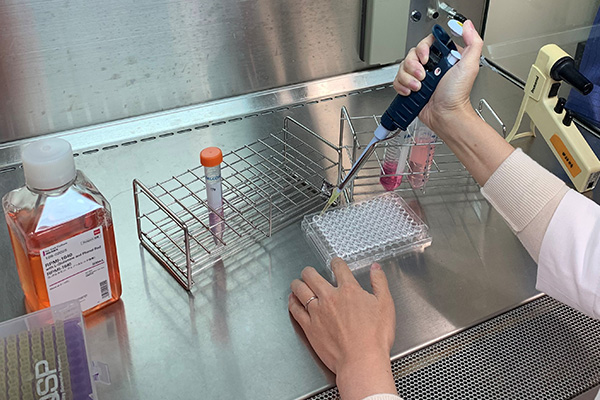
[ad_1]
Scientists at Tohoku University have found that human editing enzymes are likely behind a type of mutation in the COVID-19 virus that stimulates the release of pro-inflammatory molecules called cytokines by the body’s immune cells. The discovery, published in Scientific Reports, is important for understanding how the virus is evolving.
The genetic material of coronaviruses, including the SARS-CoV-2 virus that causes COVID-19 infection, is contained in a single strand of RNA. Coronaviruses have fewer genetic mutations than other RNA viruses because they have some sort of RNA proofreading mechanism that protects them. However, they still have some mutations and scientists would like to understand how they occur and what their effects could be.

Point mutations of uracils found in SARS-CoV-2 varieties increased the release of pro-inflammatory molecules by macrophages. © ️Tohoku University
Tohoku University immunobiologist Emi Furusawa-Nishii and colleagues studied the genome sequences of nearly 8,000 SARS-CoV-2 viruses from an international database. They specifically looked for “point mutations,” in which a nucleotide base within the virus’s RNA is transferred to another base.
Their analyzes found that the viral strains that had evolved from the original isolate in Wuhan, China, had a disproportionate number of cytosine bases that had been converted to uracil, as well as a number of other nucleotide base switches. Further analysis of the nucleotide bases before and after these point mutations suggested that they were caused by two types of human editing deaminase enzymes, called APOBEC and ADAR.
The scientists then wanted to study the effects of mutations on macrophages: a type of white blood cell that is part of the body’s first line of defense, or its innate immunity. They tested the production of two pro-inflammatory cytokines, called tumor necrosis factor-alpha and interleukin-6, from human macrophage cell lines. The cells were stimulated with a Wuhan-type or mutated SARS-CoV-2 virus RNA fragment. Surprisingly, they found that the uracil-rich RNA fragment in mutated SARS-CoV-2 viruses increased production of the two cytokines.

Scientists tested the effects of mutated viral sequences on human macrophages. © ️Tohoku University
“Our findings suggest that the point mutations we detected in SARS-CoV-2 viruses were caused by RNA modification as part of the human defense reaction against infection,” says Furusawa-Nishii. “They also show that the evolution of the virus is increasing innate immune responses in the host.”
Scientists say more studies are needed to determine whether this increased innate immune response aids in efficient elimination of the virus or leads to aggravation of symptoms.
- Publication details:
Title: Point mutation bias in SARS-CoV-2 variants results in greater ability to stimulate inflammatory responses
Authors: Masato Kosuge, Emi Furusawa-Nishii, Koyu Ito, Yoshiro Saito, Kouetsu Ogasawara
Magazine: scientific reports
DOI: 10.1038 / s41598-020-74843-x
.
[ad_2]
Source link